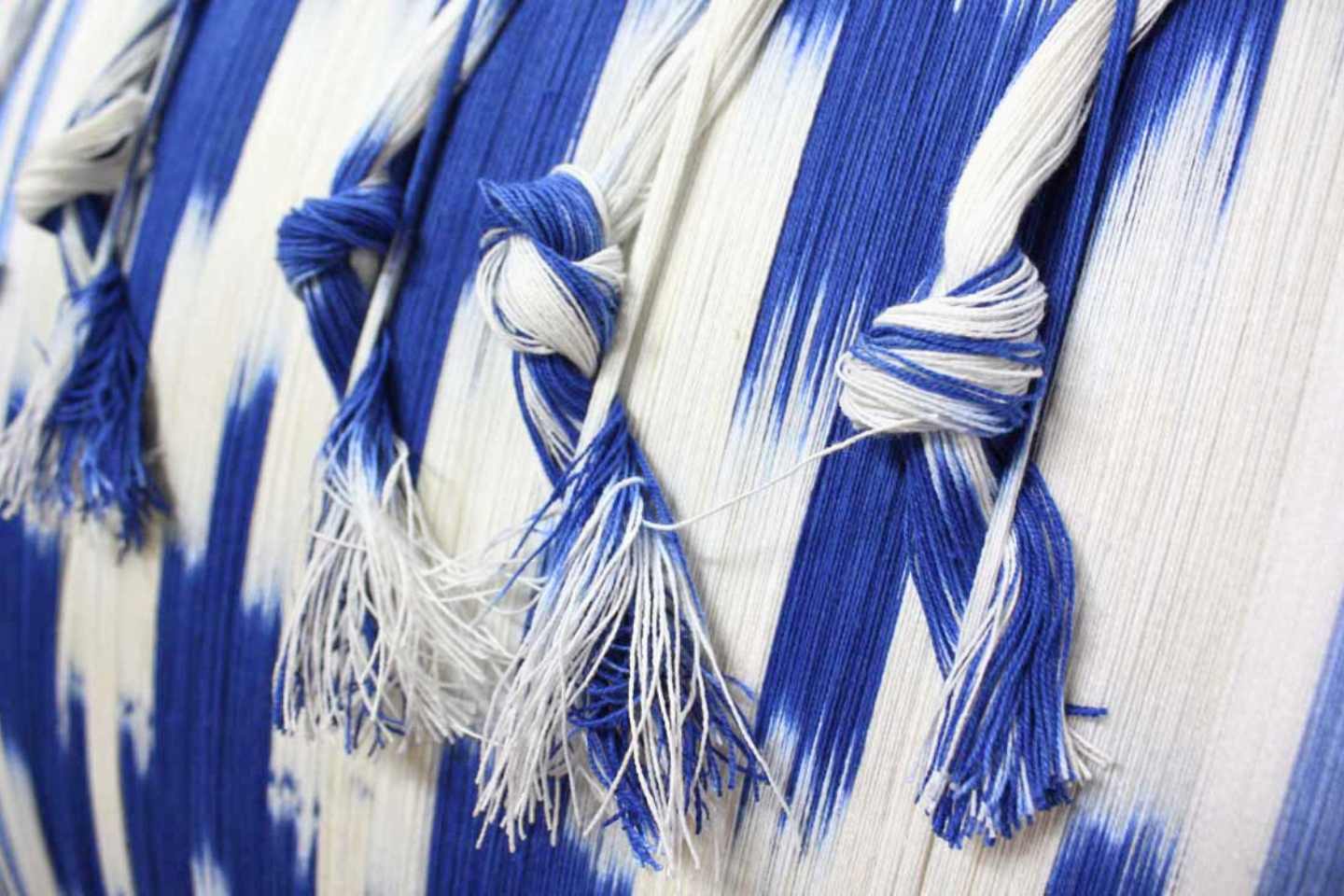On the cobbled streets of Palma and across Mallorca you’ll catch flashes of this blue and white fabric on shoes, bags, and cushions in cafés. This vibrant material with a flame-like pattern is woven into the island’s cultural fabric and known as roba de llengües. But what exactly does this mean? Read on to find out more about the visual symbol of Majorcan art and craft traditions.
The history of Mallorca’s cultural fabric
Meaning “cloth of tongues” in Mallorquín, roba de llengües arrived in the Balearic Islands in the 18th century. Legend has it that the technique travelled from the East down the Silk Road to Europe and, after the French Revolution, craftspeople escaped to Mallorca bringing their textile know-how with them.
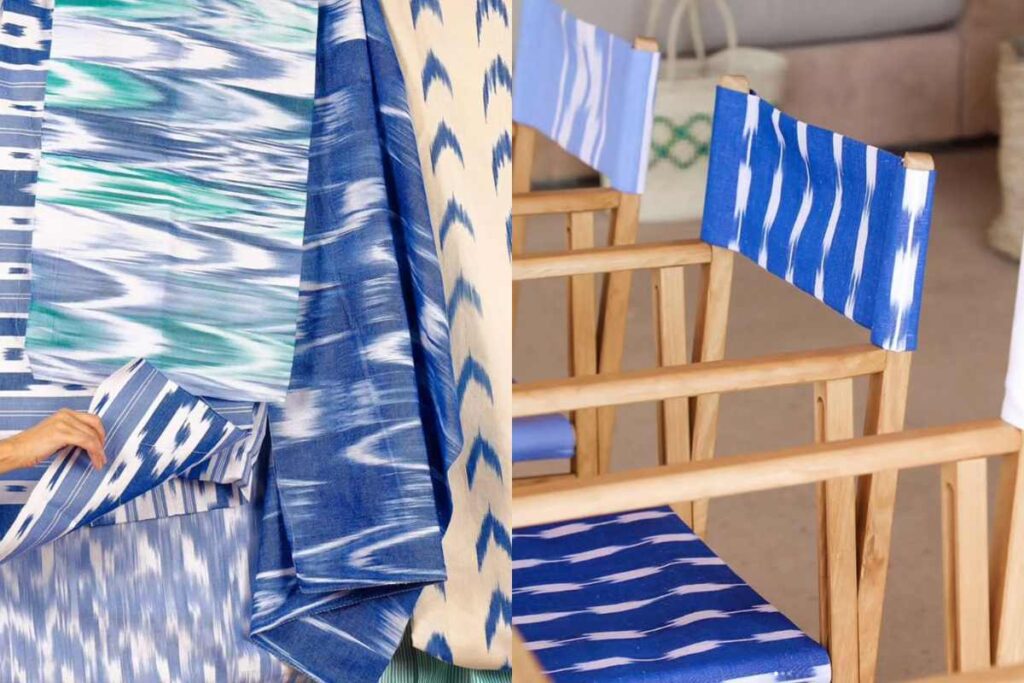
How it’s made
The fabric was originally made of hemp yarn that was handwoven on large looms. These days, the textile is usually a blend of white cotton and linen that is colour-dyed in sections and knotted to create the distinctive pattern, although techniques may vary. Colors also range from blue and white to red and white and more. The process is complex and the fundamental stage of the manufacturing process is done manually as it was in the past. The fabric is then placed on the loom and woven using raw linen as a weft to give weight and body.
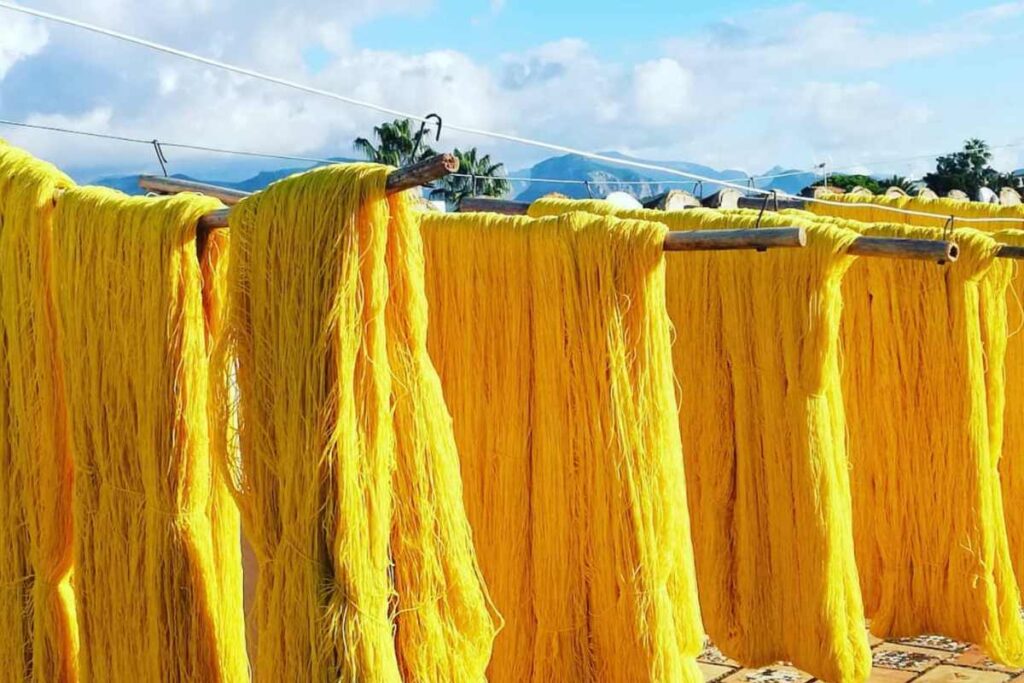
Where to buy ‘roba de llengües’
Mallorca’s weaving tradition is very much alive thanks to three textile workshops on the island. Based in Pollensa, Teixits Vicens is a family business producing textiles since 1854, specialising in roba de llengües. Dedicated to crafting beautiful fabrics infused with Mediterranean spirit, Teixits Vicens combine traditional weaving techniques with design innovation. From fabric to homeware—chairs, cushions, hangings—handbags and clothes, explore the collections online and you can even book to visit the workshop.
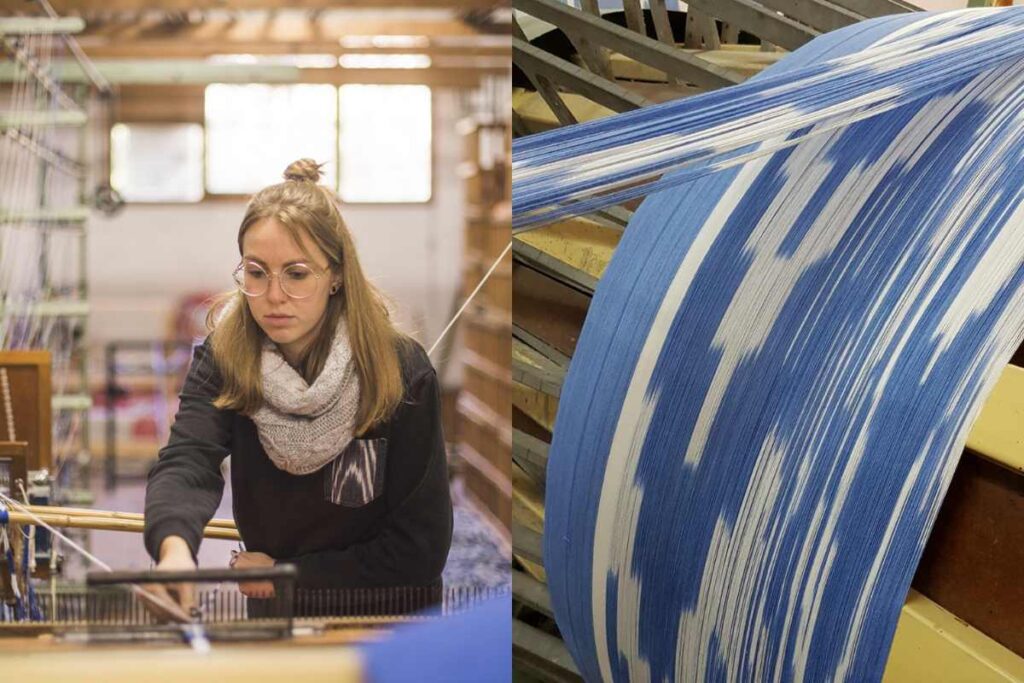
Teixits Riera in Lloseta is another small family textile company committed to the design and manufacture of fabrics for almost 125 years, using the knowledge from previous generations. Visit the store to explore everything they have to offer. Artesanía Textil Bujosa in Santa María del Camí, has seen three generations producing textiles since 1949. The family-run business promises top-quality made-to-order fabrics, including roba de llengües, known as telas de lenguas in Castellano. The colours and patterns are created by hand before being passed on to the mechanical loom that creates the irregular, imperfect design that sets it apart from industrially produced imitations.
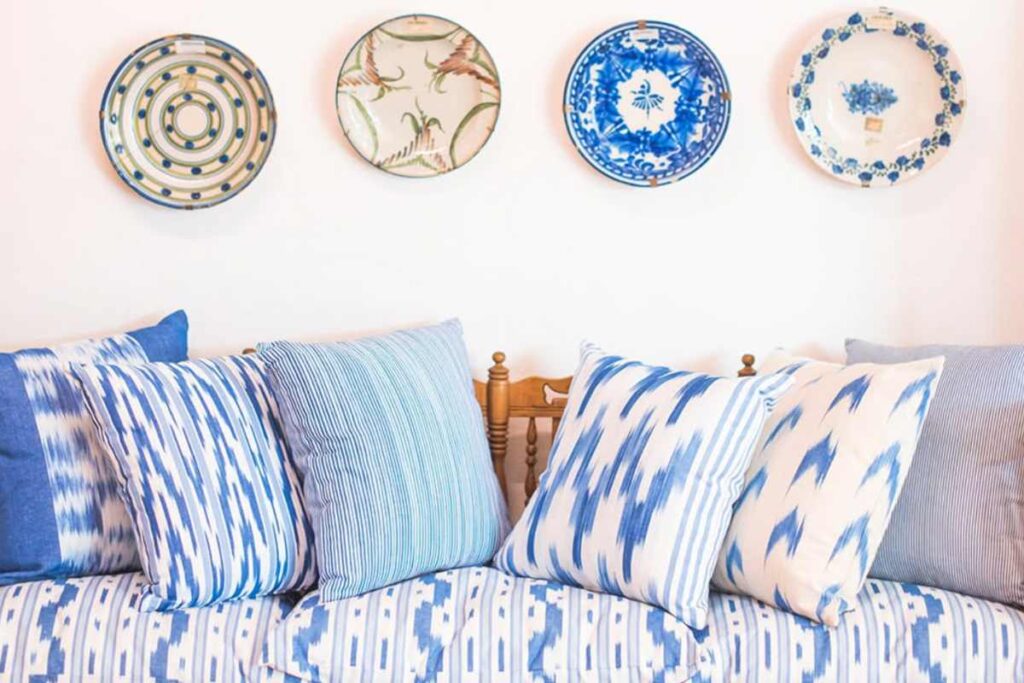
Want to know even more? Visit the Museu Martí Vicenç in Pollensa, to discover more about how artisanal loom weaving works and explore a wide range of historic designs that are hundreds of years old.

